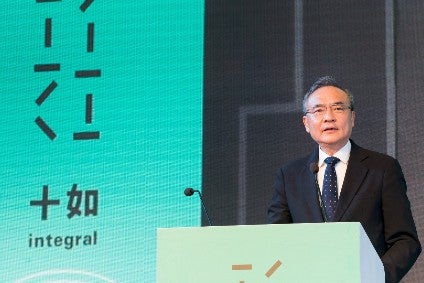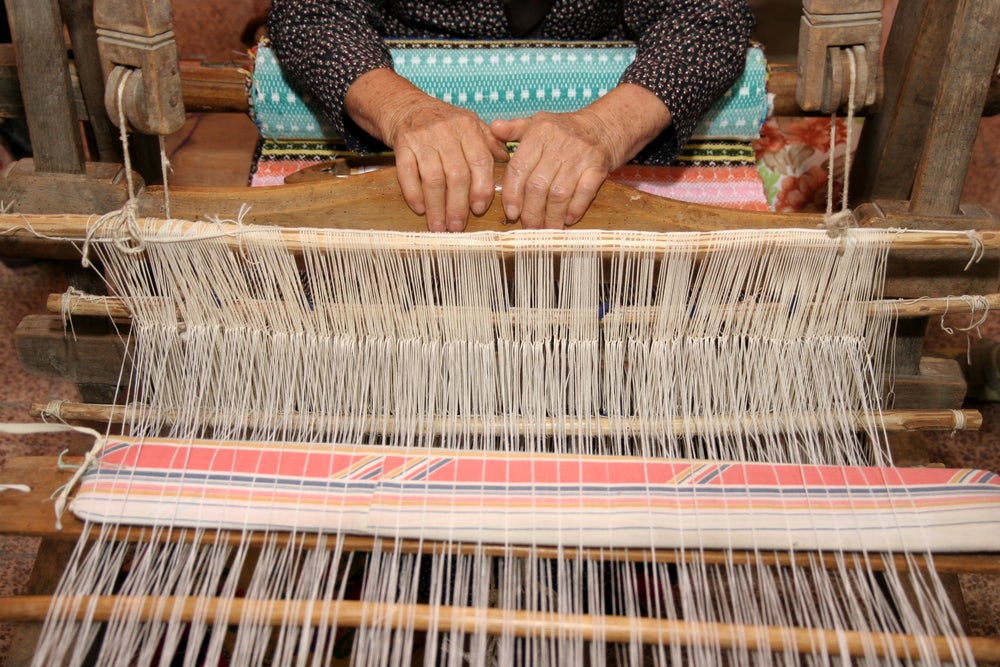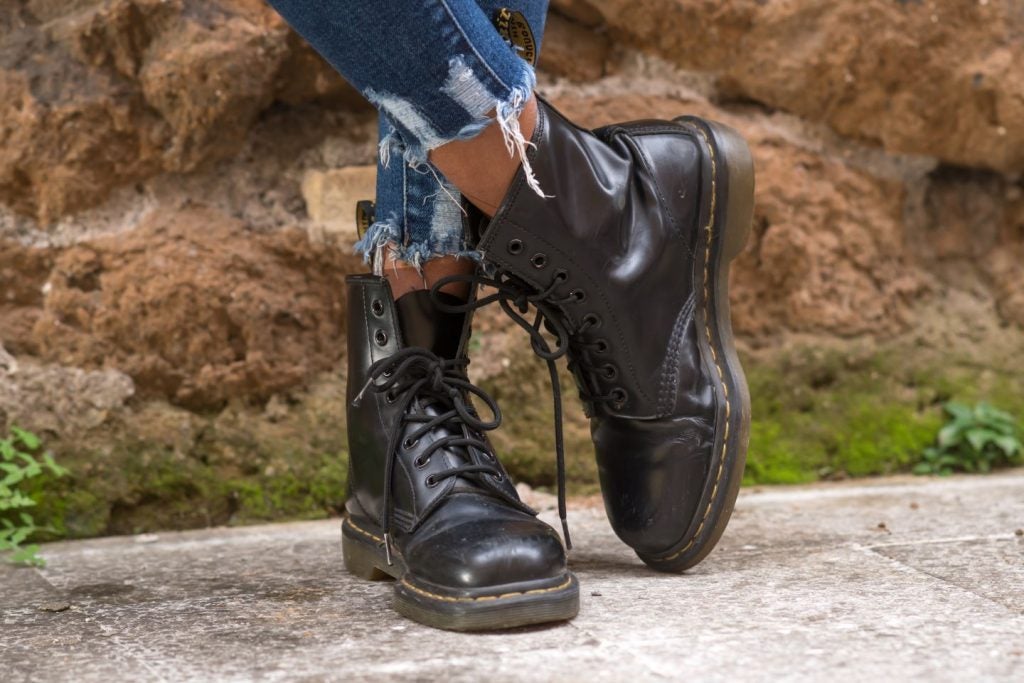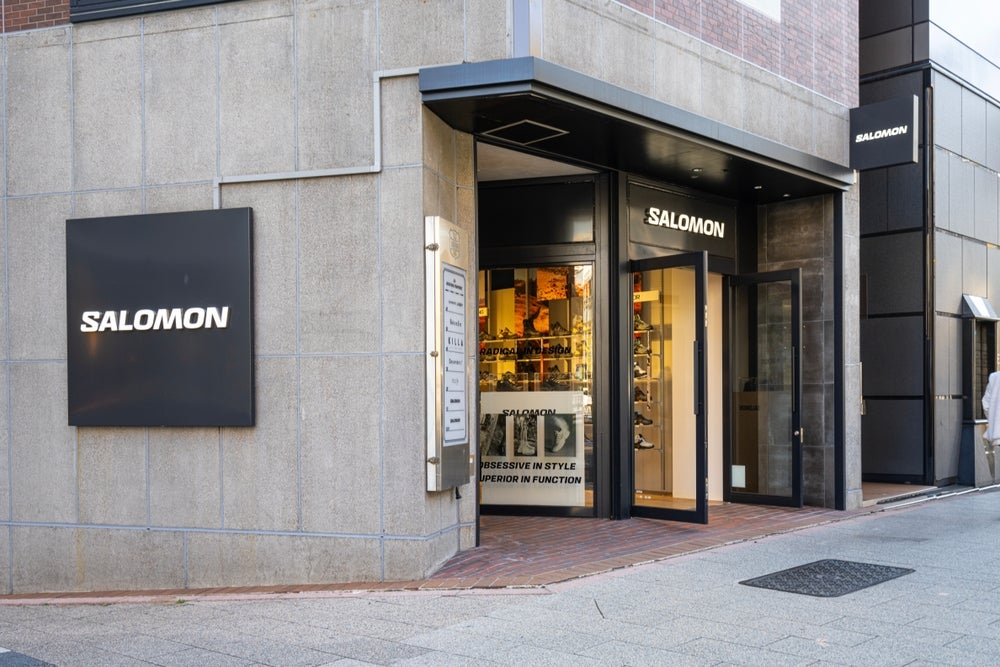
A leading and long-term supplier to global names such as Marks & Spencer, Ralph Lauren, Tommy Hilfiger, NIKE and Hugo Boss, Hong Kong-based shirt manufacturer Esquel Group is testing a new territory as it broadens its sustainable horizons, as vice chairman and CEO John Cheh explains.
In a new move for the company, earlier this year it entered a partnership with NetEase, a major Chinese internet technology company that is also known for its newly established e-commerce business ‘NetEase Selection’ (NS).
Selling exclusively online under the private label NS, the company procures various products including toiletries, kitchenware, stationery and apparel, promoting the idea of “best quality from best suppliers at best prices.”
“So when it comes to shirts, the procurement team came to Esquel,” Esquel vice chairman and CEO John Cheh told just-style in an exclusive interview in Guilin in southern China, where the company held its annual Integral Conversation conference earlier this month.
Under the partnership, Esquel supplies shirts to NS, which sells through the largest Chinese B2C site Tmall and its own website.
See Also:
“The business model is pretty much the same with our other clients, but e-commerce is so big in China that we are not going to turn away the potential to explore online opportunities,” Cheh says.
How well do you really know your competitors?
Access the most comprehensive Company Profiles on the market, powered by GlobalData. Save hours of research. Gain competitive edge.

Thank you!
Your download email will arrive shortly
Not ready to buy yet? Download a free sample
We are confident about the unique quality of our Company Profiles. However, we want you to make the most beneficial decision for your business, so we offer a free sample that you can download by submitting the below form
By GlobalDataBecause the partnership is new, there are many things the two parties need to learn about, he adds. For Esquel, it could be inventory management for online sales, and dealing with almost real-time consumer feedback, which does not happen often with traditional clients. For NetEase, it might be the way of doing business with a quality clothing supplier such as Esquel, and learning about fabrics and yarns.
“It has been good so far, and we are working together to see how it goes,” Cheh explains.
Core business
Having said that, Cheh emphasises that supplying traditional branded commercial clients is still the core business for the firm, which had sales of US$1.3bn last year, employs 55,000 workers globally and manufactures over 100 million garments annually.
Among these, there are some particularly high profile corporate clients that grace Esquel’s client list. Apple, for example, started to work with Esquel on new products in 2016, and recently the Hong Kong company has not only been making uniforms for staff in Apple Stores worldwide, but also retail items, including T-shirts and tote bags sold in Apple stores.
Acknowledging Apple is Esquel’s largest corporate client, Cheh adds: “Apple chose us because of our quality, reliability, corporate value and sustainability.”
Indeed, Esquel no longer sees itself a typical textile and garment supplier, stressing these commercially transcendent qualities in its business dealings. Sustainability, a theme for its Integral convention each year since 2014, is considered by Esquel’s leaders to be the key for its future growth.
Energy efficiency
Over the last decade, the company has invested heavily in waste treatment and energy conservation in all of its manufacturing sites in China, Malaysia, Mauritius, Sri Lanka and Vietnam, resulting in reductions of 60% and 40% in water and energy consumption respectively on a per shirt basis, according to Cheh.
“Our investment in energy efficiency rewarded us handsomely because saved energy and water are both [reduced] costs. In ten years, can you imagine how much we have saved? This is why I often say sustainability, to businesses, is not all about some PR slogan or ideology,” Cheh says.
As a major part of this policy, minimising the company’s use of hazardous chemical dyes that could lead to water pollution is also a key goal for Esquel.
It is working with Kunming Institute of Botany, in Yunnan province in south-western China, a division of the Chinese Academy of Science, to explore the potential of natural dyes. And there will be a research laboratory in Esquel’s Guilin Integral manufacturing site, which is still under construction, to develop eco-friendly dyes.
“We are doing lab testing and trial runs. Natural dyes have the potential, but at the current stage we still have to rely on chemical dyes for mass production,” Cheh says.
Esquel has been buying dyes with lighter ecological footprints from multinationals such as the American company Huntsman, and it is also doing its own research on dyes that could reduce water consumption, or using so-called waterless dyes, which use foam instead of water, Cheh says. “We are running several confidential dye projects to reduce water use and improve fixation efficiency,” he adds.
Investments
Cheh once again stresses how important mainland China is to the company in terms of its supply chain and its two private labels sold in China – PYE, for the premium market, and Determinant, for the mass market.
For example, Esquel is designing a new logistics centre in its largest manufacturing hub, located in Gaoming in Guangdong province. It also recently bought land in Guilin, in south China’s Guangxi region, near its current Integral business campus site, for a new spinning mill.
But perhaps the most impressive project is the new spinning mill launched in July at its Xinjiang site. Highly automated, the mill, which cost about US$25m, only has 15 staff controlling the 10,000 spindles, while typically such a big mill usually requires 50 to 60 workers to manage it if operated in a traditional way.
“Our workers are actually technicians, because what they do is no longer working on spindle lines but managing the equipment with their smart devices,” Cheh says. Thanks to cloud computing technologies, all data is saved on cloud servers for managers, such as Cheh, to remotely check manufacturing processes in real-time.
Automatic technologies have also been adopted in Esquel’s garment facilities in Gaoming and Malaysia which are packed with robotic arms, computers and automatic carts which convey materials.
Cheh says using technology is not only about cutting labour costs, but boosting efficiency and accuracy.
“Human beings make mistakes and one flawed shirt rejected by clients means wasted cost. With all the robotics and automated equipment, we want to minimise such losses,” Cheh explains.
He takes fast fashion as an example to emphasise the importance of efficiency.
“Fast fashion is not the faster the better, but getting the products in stores at the right time and on time. Efficiency guarantees we can achieve that,” Cheh says.
“Esquel may be a manufacturing company, but we are inspired by advanced technologies and moving forward to Industry 4.0.”
For more detail on some of the innovations to boost sustainability in the textile and clothing sector and beyond that were highlighted at this year’s annual Integral Conversation conference, click on the following link:
Innovation is the key to successful sustainability
Last month just-style also took a close look at Esquel’s sustainability initiatives, including using fewer but more skilled workers, increasing productivity, investing in robotics and automation, micro-financing cotton farmers, and even selecting the whitest cotton fibres to reduce the bleaching process are among the initiatives.






